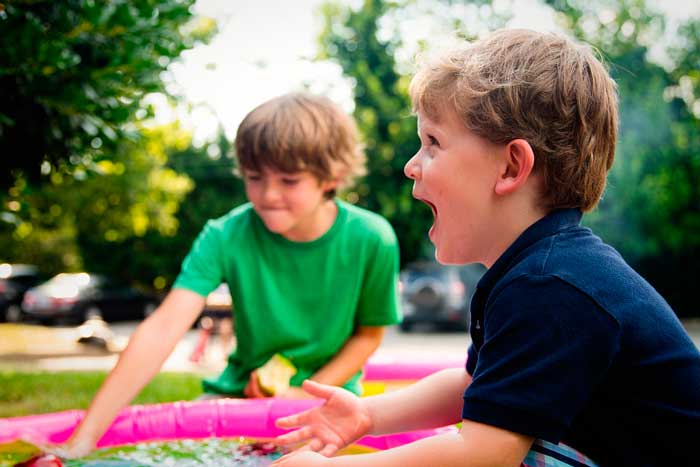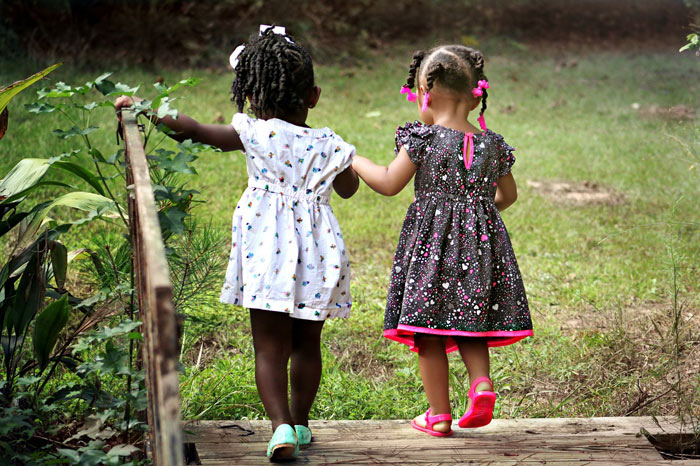10 Pieces of Advice How to Keep Your Cool as a Parent
There are times when you can’t but feel that your little one is all set to drive you completely wild. As if she were doing it on purpose! Of course not, so try to remain cool and calm instead of yelling your head off. You will get your point across better if you are calm.
 Concentrate on breathing
Concentrate on breathing
Breathe in and out, do it until you regain your calm.
It’s the second time you told the kid to collect the toys because it’s bedtime soon. But when you came in to get her ready, the dolls are just where you saw them half an hour ago. You begin to see red – another moment, and you’ll start yelling. You don’t really want it – so take a short time-out before you go to pieces and take a few slow breaths. You can close your eyes for a better effect. You are irritated and you can get your child irritated too, so stay calm and think up a way to be firm with her about clearing the place.
Handle the behavior
They are good children, really, it’s just they misbehave at times.
You started teaching the little one to draw, to model or to ride a bike. What if her first attempt is awful? Do you impose instant punishment on her? No, what an idea! You soothe, support, guide her along. There’s no reason to treat the discipline issue differently. As we teach the kid simple tasks using a positive approach, so we should approach behavior. Somehow people came to believe that punishment is the only method to be used against acting up. Naturally, this is not the case. If a child was rude to another child while they were playing together, parents usually yell at her telling her to stop. You can try to put things right by addressing the wrong behavior and explain earnestly why this kind of misbehavior is inadmissible.
Be firm and serious without yelling
As you set to the task of directing the kid on behavior, use a soft tone instead of a harsh one.
The best direction that produces a lasting impression is the one delivered in a voice both strict and gentle, devoid of any unnecessary irritation. If your voice is stern but calm, the child is put to work in order to listen, so the message of your enjoinment sinks in deeper. Thus you avoid straining your voice as you instruct the kid, and can be sure that she understands what you are saying much better.
Help her express her feelings
Make sure you have figured out the reason behind the child’s misbehavior before flaring up.
Toddlers are very short of possibilities to share their feelings, so they often act up because it is the simplest way they can grasp to show you the emotions that carry them away. Parents ought to be aware of the importance to teach their children alternative ways to express their feelings so they can validate the emotions without approving the worst emotional outbreaks. If your child hit a friend who interfered with her game, your first impulse may be to prevent her from repeating it by shouting. It’s far better to call her up and explain clearly why she mustn’t behave like this: “I understand you got irritated, you should tell your friend so instead of hitting out.”
Set clear-cut rules and enact them
If you threaten the kid and fail to act on your threat, the child will go on testing you thereby causing your rage.
You tell her to stop watching TV, but she makes out she didn’t hear you. Then you are tempted to threaten her by sending her to time-out, but she still persists in gluing herself to the screen. You get at her telling that you are serious – but that doesn’t work, and she is not going to mind your nagging. So that could end in parents feeling utterly frustrated and resorting to shouting. Yet the simple answer is to follow up on your threats.
Praise them not only for exemplary behavior
It’s advisable to comment favorably on behavior as often as possible.
Little kids thrive on their parents’ attention so much that it doesn’t matter if it’s positive or negative. They are accustomed to being lauded for good behavior and upbraided for bad, and they can take either without a strong preference. Try ignoring your kid instead when she is acting up, whining or otherwise misbehaving: she may just be clamoring for your attention. If you react negatively, they may go on to continue receiving your bad attention. But if you praise their decent behavior when it didn’t quite warrant praise, the kid sees that you notice it and will try to repeat it.
It’s easier to make them behave when there is a strong bond
Your disciplinary methods will work much better if there is a strong relationship with the child.
Every child wants to feel that she is very close to his mom and dad. Remembering it, you should affirm your ties periodically, making the bond stronger still and, incidentally, making the child more grateful. Child psychologists aver that those children who feel closer to their parents are less likely to misbehave. And when she does – no child being a paragon, – she will accept punishments and disciplinarian measures more easily.
Imagine yourself in their place
You don’t like to be shouted at; why should your child do?
What we mean is to teach our kids step-by-step, help them grow up and get stronger inwardly. We don’t mean to stunt their growth. Yet when we shout at them we lower their self-esteem, make them lose the feeling of being worthy. As you find yourself embarrassed and flustered when your boss raises his voice at you, so does your child. You can make her understand without making her feel bad.
Go for sound sleeping and eating
Health adds to happiness.
Your beloved child’s sudden acting up can be the result of irritation caused by insufficient or poor sleep and/or stomach discomfort. Are you 100% sure her diet is properly balanced and she enjoyed a good sleep? We are put out of joint by tiredness and hunger – our children even more so. Once your kid is well-fed and rested, moving along her regular everyday schedule, reasons for misbehaving are greatly diminished. On your part, if you had a good night’s rest and aren’t gnawed at by hunger, you will be able to control yourself better and avoid slipping into an angry outburst.
Sometimes we fail
We don’t want to yell at our child, but now and again it happens – know how to put things right.
It has been a hard day, with your kid trying your patience in more ways than one. You have done your best to keep your anger in check, but another push sends you flying off the handle. The child has gone and done it – now you are yelling, and no matter how ashamed you feel, there’s no turning back. The idea is to get yourself calmed down and continue the talk with your child afterward. You can tell her that you didn’t want to get mad and you were frustrated by her failure to listen. So both of you must try and behave better to make your life more pleasant.
How about spanking?
Do you feel driven to spanking? Hold on for a moment, breathe in and out, and think what your kid is supposed to understand from this.





